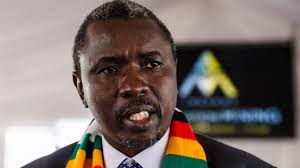Questions that are begging for answers from Zimbabwe’s March 2022 by-elections

Dr. Phillan Zamchiya
Dear Reader, ahead of the 2023 general election, Zimbabweans went to cast their votes in parliamentary and local government by elections on 26 March 2022. Citizens Coalition for Change (CCC) led by Nelson Chamisa came first, the ruling Zimbabwe African National Union Patriotic Front (ZANU PF) led by Emmerson Mnangagwa second and the Movement for Democratic Change Alliance (MDC A) led by Douglas Mwonzora came last.
Out of the 28 parliamentary seats up for grabs, CCC won 19, ZANU PF nine and MDC Alliance got zero. Out of the 122 wards, CCC bagged 75, ZANU PF 47 whereas MDC Alliance got another zero. A total of 20 out of the contested 28 parliamentary seats and 78 out of the 122 local wards became vacant due to recalls of the representatives by a faction led by Mwonzora. Following the internecine fights, Chamisa eventually left the MDC A and rebranded his movement to CCC in January 2022.
There are a number of political questions that these by elections helped to answer. Here are six.
- Which party is more popular between MDC A and CCC?
- Is there now a credible infrastructure to run free and fair elections?
- Are ZANU PF’s policies appealing to the urban voters?
- Is the opposition making electoral inroads in the rural areas?
- What is the new from Chamisa at CCC?
- Are citizens ready to put a ceiling on election rigging?
Reader, come now let us debate some answers.
The opposition movement, CCC, is the new kid on the block after trouncing Mwonzora’s MDC Alliance. CCC is already entrenched in the hearts and minds of the people. A related point is that with real or imagined flaws, Chamisa remains by far the most popular opposition leader in Zimbabwe today.

He demonstrated his political astuteness and charm in galvanizing the electorate. His heart beats with the masses. It is a herculean task for any opposition politician to match Chamisa before the 2023 general election.
Any effective coalition will mean that democratic forces will have to converge around him. However, Chamisa must make it easy for other actors through encouraging collective leadership, embracing the art of modern institution building, trusting his lieutenants and promoting inclusive politics.
As the undisputed opposition leader, Chamisa needs to reassure stakeholders that ‘it is not about him but about us’. On the other hand, MDC Alliance and its leader Mwonzora will not resurrect electorally in 2023. They are not Jesus Christ. In short, Mwonzora has suffered a politically premature death.
- Is there now a credible infrastructure to run free and fair elections?
Reader, this was not an ideal free and fair by election. The Zimbabwe Republic Police (ZRP) selectively stopped CCC’s campaign rallies. The CCC had to approach the courts to hold some of its rallies while ZANU PF and MDC-Alliance campaigned freely.
ZRP arrested six CCC candidates and more than 30 supporters during the campaign. The public media favoured ZANU PF, some traditional leaders were partisan, Mnangagwa’s party was the main perpetrator of political violence against opposition supporters, ZANU PF supporters killed a CCC activist, Mboneni Ncube, at a rally addressed by Chamisa in Mbizo, Kwekwe. ZANU PF partly used state resources for party campaigns.
On the other end, the Zimbabwe Electoral Commission (ZEC) failed the credibility test. Thousands of registered voters were either moved to different wards and constituencies and had their names deleted from the voters’ roll. In some cases, multiple voters were registered under a single address.
Reader, this is a portent for the 2023 general election to come and threatens prospects of a democratic election. A practical take from by elections is to invest in reforms of institutions that will outlast reformers if ZEC is to deliver electoral democracy.
- Are ZANU PF’s policies appealing to the urban voters?
Reader, a lot has been said about how ZANU PF has managed to narrow the margin in the urban areas and penetrate the opposition strongholds. However, the question is did ZANU PF manage to increase its urban vote numerically on the back of its policies? The answer is no. The vote did not grow.
Rather, the narrowing of the gap is a result of the decline of the opposition vote from previous trends. ZANU PF’s policies are still to have a significant impact electorally. Mnangagwa’s party won only one urban seat out of 20 that is Epworth.
In fact, Epworth is not at the centre. Like Harare South which ZANU PF won in 2018 it is located in the urban periphery. In the periphery, it is easier to use patronage because of informal land markets, informal markets and informal houses, a strategy to be replicated in the 2023 general election.
The people are relegated by the state to live as subjects. CCC significantly controls urban centres having won 95% of the parliamentary seats where people have a degree of autonomy and live as citizens with rights.

Some of ZANU PF’s urban policies seem detached from the immediate quotidian concerns of the poor urbanites. Part of the electorate construe them as utopian.
I remember very well on 12 March 2022 on my way to Robert Gabriel Mugabe (formerly Harare) airport. I had a conversation with the driver about whether the renovation of the airport would influence his vote. He said, ‘I never use an aeroplane. I do not eat the airport. I cannot vote for an airport. An airport is for the rich. Us the poor need food, rentals and school fees.’
I was surprised because infrastructure is key for development. However, the priority for the urban voters was to have a dollar in the pocket. Yet, in his campaign, Mnangagwa had confidently presented himself as a man of deeds through pointing at these utopian projects amidst a sea of poverty.
The majority of citizens continued to survive on less than USD 1.90 a day. Some of the policies failed to capture the urgent need for income across households amidst rising urban poverty. It was therefore not surprising that ZANU PF’s vote in the urban areas is still to grow.
- Is the opposition making electoral inroads in the rural areas?
The answer is no. In fact, the numbers are declining significantly and the gap is widening. CCC won a single rural constituency out of eight that is Binga North. ZANU PF maintained its rural hegemonic domination scooping seven out of eight of the parliamentary seats.
Just to illustrate, in Mwenezi CCC had only 1 573 votes compared to ZANU PF’s 12 177 votes, in Chivi CCC had a paltry 1 414 whilst ZANU PF got 6 832 votes and in Murewa south CCC managed 1 729 compared to ZANU PF’s 11 125 votes. Free formation of preferences remains limited for the rural folks.
The partisan hierarchy of traditional leaders, perverse violence, the opposition’s failure to build pervasive structures deep in the rural hinterland and CCC’s urban bias in its campaign and messaging all contributed to the poor showing among other factors.
CCC’s most potent weapon, Chamisa, was largely visible in the urban spaces during the campaign. He was in Highfields, Epworth, Masvingo, Kwekwe, Mkoba, Bulawayo and Mutare. He had a rally in rural Tsholotsho but ZRP blocked him to hold rallies in Gokwe central and Binga.
It was surprising that CCC did not use its main man to campaign vigorously in the rural hinterlands like Mwenezi East, Mberengwa and Chivi. A rural strategy is needed ahead of next year’s general election. Failure of which, there will be a calamitous rural showing gifting ZANU PF a 2/3 majority on a silver platter and crippling the Presidential bid.
- What is the new from Chamisa?
Chamisa’s narrative has largely remained the same compared to his days at the helm of MDC A. However, changes are observable in his articulation of transitional politics and state power. Throughout the campaign trail he appealed to the levers of state power transfer. The incumbent, the war veterans and the security services.
All this was accompanied by a patriotic ideology. Chamisa projected himself as the one who can complete the unfinished business of the liberation struggle. In many ways, he claimed to be the future guardian of sovereign national interests.
He knew that even if he wins the popular vote, the wielders of power might not hesitate to block him from entering state house. This was even more likely if he did not embrace the ideals and objectives of the liberation struggle.
In every province he went, he saluted towering liberation war heroes. He also exalted war veterans in general and promised them better government support to improve their welfare. This strategy was complemented by allaying fears that come with the winds of democratic change.
He reassured Chiwenga and Mnangagwa that his government was going to look after them given the contributions they made to the country. Despite the atrocities committed by the security services, Chamisa reassured the police and the soldiers that they were going to retain their positions with even better working conditions.

He fell short of absolving them from any wrongdoing and rather blamed those who gave them orders. This narrative was informed by his understanding of the levers of state power. Zimbabwe should expect Chamisa to strike this chord more consistently towards 2023.
It will not be surprising if he comes with a new narrative on the sanctions question. His mind is not just preoccupied with winning elections but with how to get state power the morning after.
- Are citizens ready to put a ceiling on election rigging?
From the by elections one can conclude that citizens still have a lot to do to put a ceiling to election rigging. To put a ceiling, there should have been at least a million newly registered voters. The huge and electric rallies did not translate into a huge voter turnout.
One might argue that historically Zimbabwe has always had low voter-turn out during by elections. However, stakes were high, all the political parties pitted these elections as a dry run for 2023, they invested heavily and these mirrored a mini-general election.
ZEC controversially showed that only 2 971 people registered to vote in 2021. From 1 February to 20 February 2022 only 49, 636 people registered to vote during ZEC’s mobile voter registration blitz. These low figures will make it difficult to put a ceiling on rigging.
A robust, digital and efficient Parallel Voter Tabulation system should have been in place. Alongside an active citizenry should have been at most polling stations to defend the vote. This could have been an indicator that it is possible to reduce rigging related to inflation and deflation of numbers in 2023.
This is important because Zimbabwe is not likely to have a democratic election in next year’s general election. It is up to the opposition to work towards putting a durable ceiling as I seal this article.
Dr Phillan Zamchiya holds a Doctor of Philosophy (D. Phil) degree in international development from the University of Oxford in the United Kingdom.




